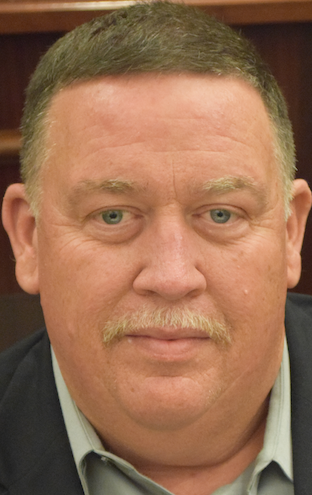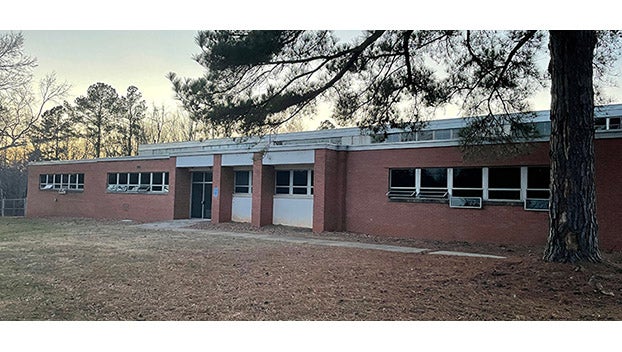Board adopts $32 million budget
Published 9:27 am Wednesday, June 14, 2017

- T. Wayne Hoover
The Lunenburg Board of Supervisors adopted its $32.4 million operating budget for the 2017-18 fiscal year (FY) Thursday during its regular board meeting.
The budget, which includes no tax increases, allocates an additional $350,384 to the school division’s budget, totaling $3.5 million in local funds.
District One Supervisor and Finance Committee Member T. Wayne Hoover spoke on behalf of the finance committee recommending the county budget.
Hoover, following a motion to approve the budget, thanked those who were involved in putting it together, saying work began on the budget in January.
“I’d be remiss if I didn’t take the opportunity to thank the county staff all involved. All the board members, all the public, everybody,” Hoover said. “We like to say we have one whole pie and dividing that up is tougher than what most people think. I want to thank each and every one of you.”
Following a June 1 public hearing on the budget, which drew speakers in support of funding the county school board’s
request for almost $795,000 in additional funds, supervisors announced that an additional budgeted $100,000 would be set aside for the schools for capital improvement projects.
The allocation of funds to the division had been the subject of debate since a March meeting where school officials requested $794,786 in additional funding for the school’s fiscal year 2017-18 that would cover state-mandated retirement and health insurance costs, a 2-percent raise for teachers and staff and the hiring of additional staff.
During the budget hearing, four people spoke, all urging supervisors to provide full funding, additional funding or create a longterm solution for the school division.
During the June 1 meeting, Hoover announced supervisors decided to include a proposed $100,000 toward capital improvement for the schools that would be set aside to be used in cases of emergency situations or other repairs.
The funds, County Administrator Tracy Gee confirmed, would come from the proposed county budget debt service reserve.
During the hearing, Doug Aubel, a member of the Lunenburg County School Board, representing the Brown’s Store District, encouraged supervisors to provide full funding to the division.
Aubel said the schools received a budgetary allocation of $3.2 million in 2000 from the county, and that amount has changed little over the years, even as inflation and state-mandated costs have risen.
Aubel said those factors have “had a devastating effect on our budget,” noting cuts in staff. He said teachers had gone four years without a pay raise.
“It is irresponsible for anyone to even assume the situation is at all sustainable,” Aubel said. “It is now imperative that the shortfall of the budget be funded by the county.”
Brenda Wade, an eighth-grade English teacher at Lunenburg County Middle School, said due to budgetary short falls, the English department, which originally had six teachers and two hours allotted for instruction per student a day, had been reduced to three teachers, one for each grade level and class and 51 minutes of instruction. Wade, who’s taught in the county for 20 years, said this has affected the students’ Standard of Learning (SOL) test scores and reading and writing development.
“Last year, we barely made accreditation in English at 73 percent. On a three-year average, we were able to make 75 on our SOLs,” Wade said.
Virginia Education Association representative Evette Wilson, who represents the teachers’ association for Lunenburg County in addition to nine other school divisions, spoke during the hearing and urged for a long-term solution for needs of the division.
“I encourage you to look at your future,” Wilson said. “What is the future of your area if it’s not invested in your children?” Wilson noted out of the 10 divisions she represents, eight counties had provided 2-percent raises.
Following the hearing, Hoover addressed the audience after the hearing, noting that one of the primary concerns, that the teachers have not received raises, had been addressed by the additional $250,384 the board had budgeted, which would provide a 2-percent raise.
“We did everything we could to scrape every nickel we could; went into the surplus, and we said based on the presentation we were given, that $250,000 would at least give the staff, employee raises,” Hoover said. “So at no point in the game has this board ever said, ‘We are not supporting the schools.’”
Hoover reiterated that the board has put all efforts into place to meeting the school’s needs with the budget they could afford, mentioning the board helped fund the new wing of Central High School and the school’s field house.
“I get very, very perturbed when I’m told I’m opposed to schools,” Hoover said. “I beg to differ.” Hoover noted that much of this year’s shortfall is due to state and federal costs, and he asked why more people were not lobbying members of the state legislature.



